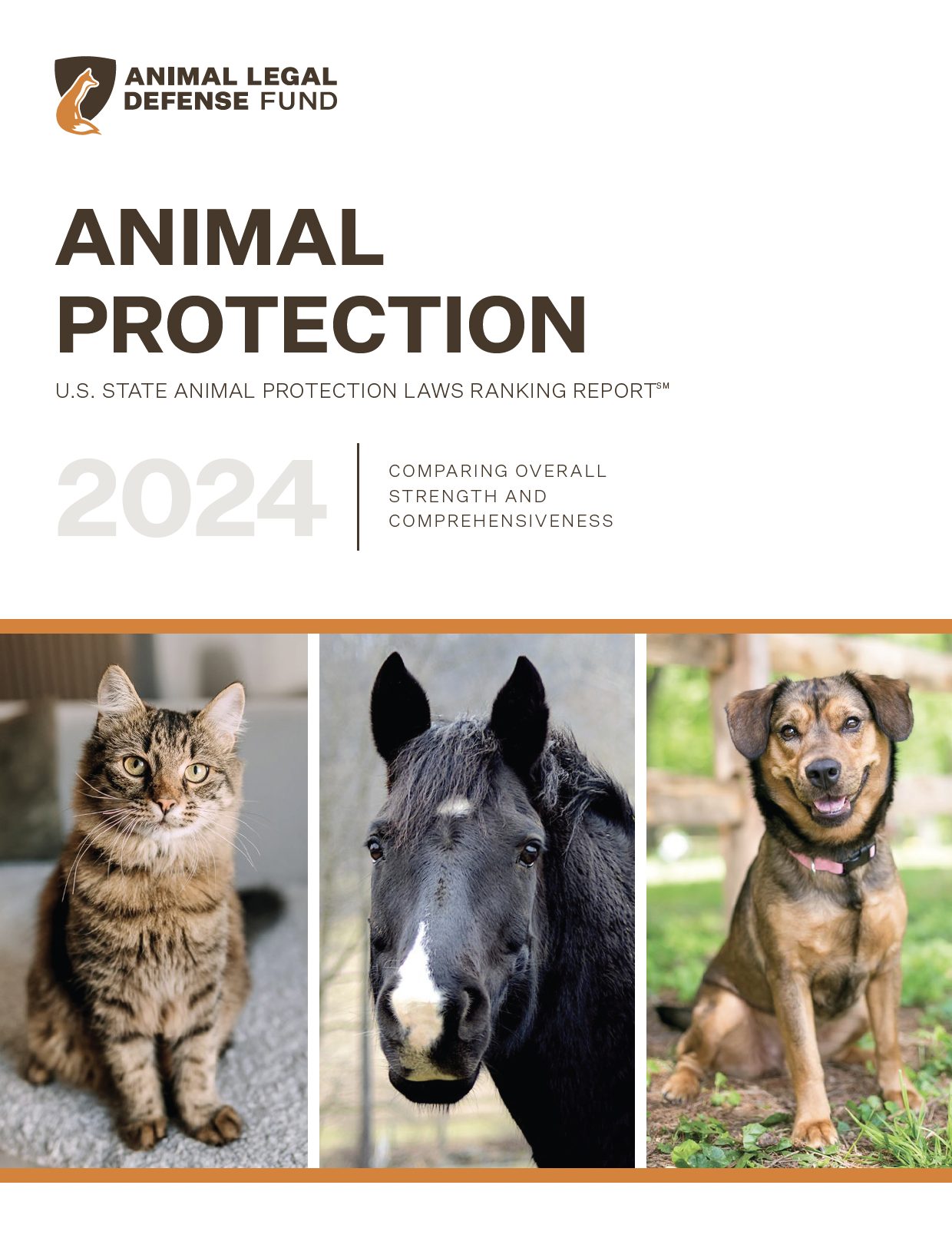
Laws supporting post-conviction possession bans
2024 U.S. Animal Protection Laws State Rankings
Post-Conviction Possession Bans
Laws supporting post-conviction possession bans
After a person is convicted of animal cruelty, the court may prohibit the defendant from owning or possessing any animal for a period of time. In many states, this prohibition is statutorily authorized, or even mandated. These possession bans are one of the most effective ways to prevent repeat offenses. They restrict an abuser’s access to animals, drastically limiting the pool of potential victims. They also allow law enforcement to intervene quickly to protect at-risk animals.
As of 2024, only 22 states mandate possession bans after a conviction for animal cruelty—and several of those state statutes are limited to specific species or crimes, such as the sexual assault of an animal. Additionally, 20 states, Guam and D.C. statutorily authorize possession bans, but those are ultimately left up to the court’s discretion.
In 2024 Oregon strengthened its possession ban law by ensuring that those who are convicted of misdemeanor animal cruelty are not permitted to reside with an animal for five years. Previously, those convicted of misdemeanor animal cruelty in Oregon were permitted to reside alongside animals, so long as they did not “possess” the animal themselves. This updated legislation not only closed that loophole, but also established a comprehensive process by which certain qualifying offenders may petition the court to reduce or remove a possession ban upon a showing that they are no longer a risk to animals.
In 2024, both Louisiana and Virginia passed laws which added greater specificity to their possession ban statutes. Previously, both states left the length of possession bans entirely up to the court’s discretion. Louisiana now permits — but no longer requires — courts to impose possession bans of up to one year upon a first conviction of misdemeanor animal cruelty, and up to five years following a second or subsequent conviction for misdemeanor cruelty. Louisiana also now permits courts to order possession bans of up to ten years following a felony conviction. Similarly, Virginia now permits courts to order possession bans up to five years following a misdemeanor animal cruelty conviction, and up to a lifetime ban following a felony cruelty conviction. This added specificity helps courts to be more consistent when making sentencing decisions. When a possession ban law does not contain specific language authorizing lengthy bans, sentencing judges may feel as though they are limited by the length of probation, when in fact possession bans often extend far beyond that period. By adding specificity in the statutes, judges will be more likely to impose longer possession bans when needed to assure the offender’s rehabilitation and protect potential victims.

You Can Protect Animals
Since 1979, the Animal Legal Defense Fund has led the charge to win animals the legal protection they so desperately need—and deserve. Your generous gift will assure that we can continue to take on cases that advance the interests of animals.

